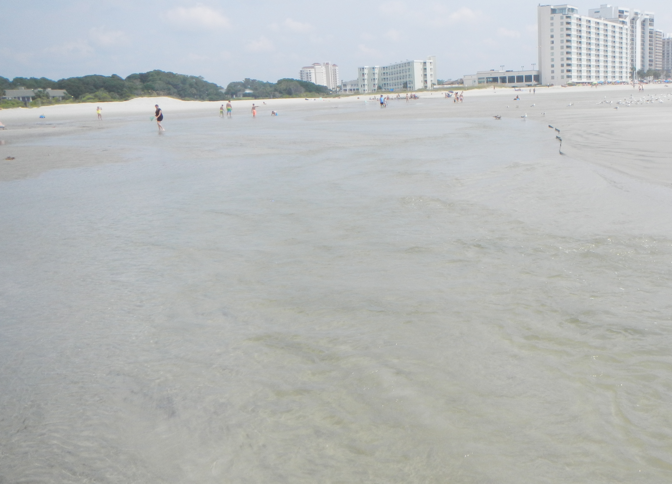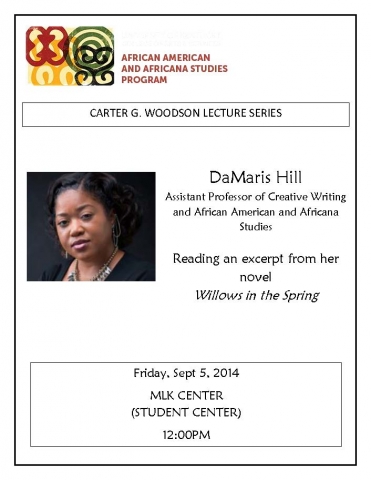Can Alcohol Release the 'Beast Within' in Spiritual People?
Professor Peter R. Giancola and graduate student Aaron Duke have found an unexpected relation between spiritual beliefs, violence, and alcohol consumption.
WRD Instructor's Art Comments on Environmental Change
Rachel Elliot, instructor in the Department of Writing, Rhetoric, and Digital Studies, will be displaying her stunning art work at this summer's annual American Founders Bank Woodland Art Fair.
FLUVIAL BEACHES
A sandy beach is actually sometimes a pretty good place to think about fluvial forms and processes. The small streams, swashes, outfalls, and ebb-tide channels can be examined up-close, and they change several times each day, with the tidal cycle (here where I am at the moment in South Carolina, two high and two low tides each day). Thus Buck Swamp Creek, which discharges on the beach near where I’m staying, goes through four cycles of change a day.
A lot of work in recent years suggests that unless the material is pretty cohesive (which of course beach sand is not), without vegetation stream channels tend to be braided, and single-channel meandering forms are rare. You can see that here, where the marsh creeks—with plants and mud—are meandering, but develop nice braided patterns where they cross the sand. But along a mud coast near Cairns, Australia, where I spent some time last (N. hemisphere) summer, the same kinds of channels across the tide flats were meandering.

Braided channel crossing the beach at low tide, Myrtle Beach, SC.
Carter G. Woodson Lecture Series: DaMaris Hill
AAAS presents the Carter G. Woodson Lectures Series.
DaMaris Hill, Assistant Professor of Creative Writing and African American and Africana Studies, will read an excerpt from her novel Willows in the Spring.

Traveling Light: Gary Ferland
Research at the University of Kentucky expands well beyond campus, and thanks to Physics & Astronomy professor Gary Ferland we have to measure the distance in light years instead of miles.
UK Faculty Members Conduct College Teaching Workshops in Qingdao Technological University
The workshops were designed to improve English and teaching skills for faculty at Qingdao Tech from several disciplines.
UK, ARC, and CDC Announce Initiatives to Address Health Disparities in Eastern Kentucky
Shaping Our Appalachian Region (SOAR) Health Impact Series will discuss health challenges and announce two new UK initiatives to address them.
OPSVAW Supports Five Students
One of the top priorities of the OPSVAW is the support of students, and the 2014-2015 academic year will see the program support five students through graduate fellowships and research assistantships.
